NCAA Changes Athlete Reinstatement Guidelines for Sports Betting Violations
NCAA Changes Athlete Reinstatement Guidelines for Sports Betting Violations Pleas Subscribe For Daily Sports Betting News
Bet at MGM - IF YOUR BET LOSES, YOU’LL GET UP TO $1,000 BACK IN BONUS BETS - https://bit.ly/BetMGM1
Want To Place a Bet .. Download the Best Online Sportsbook! (IOS) http://bit.ly/453YUZG
Grab Barstool Sports Apparel @ The Official Barstool Store: https://bit.ly/barstool23
Bet On All The Big Games @ Xbet: https://bit.ly/xbetnow
First Deposit Bonus Up To $500 + $10 Casino Chip
Please Subscribe!
The NCAA has changed its reinstatement guidelines regarding violations of legal sports betting by student-athletes.
The national governing body of college athletics in the U.S. is making changes amid the recent surge of states authorizing both online betting sites and retail wagering. The NCAA’s previous guidelines stipulated that student-athletes “who wagered on sports at any level would lose one full season of collegiate eligibility.” Those archaic guidelines were implemented before the U.S. Supreme Court permitted states outside of Nevada to offer sanctioned wagering in 2018.
"These new guidelines modernize penalties for college athletes at a time when sports wagering has...
The NCAA has changed its reinstatement guidelines regarding violations of legal sports betting by student-athletes.
The national governing body of college athletics in the U.S. is making changes amid the recent surge of states authorizing both online betting sites and retail wagering. The NCAA’s previous guidelines stipulated that student-athletes “who wagered on sports at any level would lose one full season of collegiate eligibility.” Those archaic guidelines were implemented before the U.S. Supreme Court permitted states outside of Nevada to offer sanctioned wagering in 2018.
"These new guidelines modernize penalties for college athletes at a time when sports wagering has been legalized in dozens of states and is easily accessible nationwide with online betting platforms," said Jacksonville athletics director and chair of the DI Legislative Committee Alex Ricker-Gilbert. "While sports wagering by college athletes is still a concern — particularly as we remain committed to preserving the integrity of competition in college sports — consideration of mitigating factors is appropriate as staff prescribe penalties for young people who have made mistakes in this space."
The NCAA’s new guidelines take a different approach by determining a student-athlete’s punishment based on their particular wager-related violation.
Student-athletes who influence the outcome of their own games or provide information to people involved in sports betting could face permanent loss of collegiate eligibility regardless of sport. That includes student-athletes who place bets on their teams or on any sport at their institution.
Secondly, student-athletes who wager on their own sport at a different institution will be required to receive education on the NCAA’s wagering rules and prevention policies in order to be reinstated. The student-athlete could also lose 50% of one season of collegiate eligibility.
The NCAA’s guidelines also consider the cumulative dollar amount a student-athlete has wagered. An amount of $200 or less would require education on wagering rules and prevention, while bets in the $201-$500 range would see a student lose 10% of a season of eligibility. A student-athlete would lose 20% of eligibility for wagers that amount to between $500-$800.
For all wagers that amount to more than $800, a student will lose 30% of a season of eligibility.
Appropriate timing
The NCAA’s willingness to change its sports betting penalties comes amid recent controversy.
In May, gambling regulators in Ohio ordered the state’s sportsbooks to suspend wagering on Alabama college baseball games following a suspicious in-person bet. The wager was flagged by the U.S. Integrity monitoring service, which led to a probe into Alabama baseball. As a result of the investigation, the university fired head baseball coach Brad Bohannon.
The University of Iowa and Iowa State baseball programs have also been under fire after the state’s Racing and Gaming Commission launched an investigation into alleged unlawful sports wagering by more than 40 current student-athletes and one employee across the two institutions. The probe is centered on the use of betting sites by athletes at Iowa and Iowa State.
Gambling-related violations have also reached professi...
-
 29:54
29:54
TampaAerialMedia
18 hours agoMiami Travel Guide - Downtown, Key Biscayne, Coral Gables
7.6K3 -
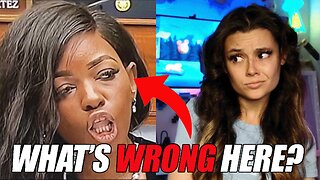 9:06
9:06
Mally_Mouse
16 hours agoCongress is getting trashy
9.81K21 -
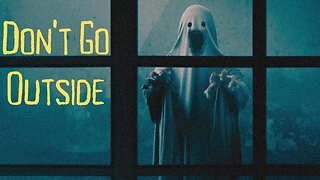 1:15:15
1:15:15
TheTapeLibrary
13 hours agoScary Stories On A Rainy Night (Rain Sounds | Relaxing Horror Stories To Fall Asleep To)
4.55K1 -
 3:41:38
3:41:38
The Jimmy Dore Show
1 day agoThe Jimmy Dore Live Panel Show
148K144 -
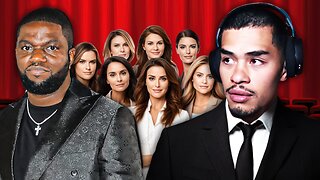 8:02:15
8:02:15
SNEAKO
12 hours agoFRESH EDATE, SPECIAL GUEST, BIG STREAM
140K73 -
 LIVE
LIVE
Fed Reacts
13 hours agoFed Explains The Disappearance of Madeleine McCann
1,904 watching -
 2:24:44
2:24:44
vivafrei
23 hours agoEp. 211: Trump Trial, Jack Smith, Tyson Loses, Ukraine, Russia V. Google & MORE!
170K349 -
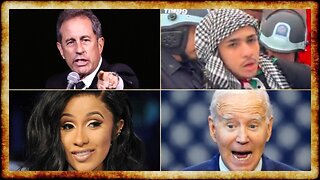 3:02:10
3:02:10
Due Dissidence
23 hours agoSeinfeld Show INTERRUPTED by Protests, Police CRACK DOWN on Nakba March, Cardi B TRASHES Biden
98.4K82 -
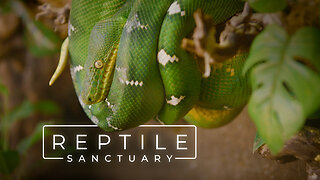 15:48
15:48
PARAGRAPHIC
23 hours agoThe Largest Reptile Sanctuary in the United States | PARAGRAPHIC
44.7K20 -
 27:45
27:45
Adam Does Movies
18 hours ago'The Strangers: Chapter 1' Is Hot Garbage - SPOILERS!
44K14